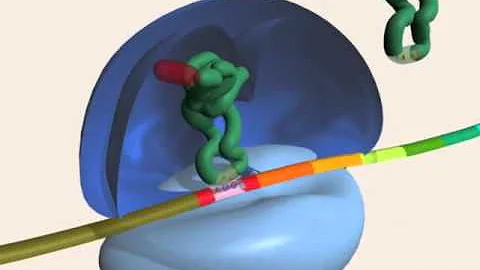Como usar o could?
Índice
- Como usar o could?
- Qual a diferença de Can e Could?
- Como responder perguntas com Might?
- Como usar Would?
- Qual a diferença entre Might e Could?
- O que os verbos modais CAN Could podem indicar?
- Como usar Will May and might?
- Quando se usa Would?
- Como usar o Will é Would?
- What's the best way to respond to " Como Estas?
- How to respond to " how are you " in Spanish?
- What's the best way to respond to a question?
- What's the proper response to " how is it going?

Como usar o could?
Como usar could
- O could é usado em momentos que poderíamos substituí-lo por “podia/poderia” ou “conseguia/conseguiria” no português. ...
- Confira alguns exemplos:
- O should é usado em inglês para expressar o nosso “deveria” em português. ...
- Veja os exemplos:
- Confira alguns exemplos do uso do would:
- Fácil, não é?
Qual a diferença de Can e Could?
Os verbos can e could que estudaremos agora significam, respectivamente, pode e podia ou poderia. Repare que o can (pode) se refere ao presente e could (podia, poderia), ao passado.
Como responder perguntas com Might?
(Eles me contaram.) They might have told me. (Eles devem ter me contado.)...Como usar o verbo might?
| AFFIRMATIVE | NEGATIVE | INTERROGATIVE |
|---|---|---|
| We might study | We might not/mightn't study | Might we study? |
| You might study | You might not/mightn't study | Might you study? |
| They might study | They might not/mightn't study | Might they study? |
Como usar Would?
Would pode ser usado:
- Para perguntas sobre possibilidades. Exemplos: How would you do that? (Como você faria isso?) ...
- Para fazer um pedido educado ou oferecer algo. Exemplos: Would you like some tea? (Você gostaria de chá?) ...
- Em situações hipotéticas. Exemplos: If I had a lot of money, I would like to own a farm one day.
Qual a diferença entre Might e Could?
O 'Could' é usado para dizer que alguém tinha uma habilidade ou permissão para fazer alguma coisa. Pode ser usado em pedidos, mas não é usado para dar / negar permissão. Por outro lado, o auxiliar 'Might' é usado para dizermos se alguma coisa é possível e para falarmos sobre ações e acontecimentos possíveis no futuro.
O que os verbos modais CAN Could podem indicar?
Os “modal verbs” acrescentam uma segunda ideia, que pode ser de possibilidade, habilidade, obrigação ou permissão. Os principais verbos modais em inglês são “Will”, “Would”, “Should”, “Can”, “Could”, “May”, “Might”, “Shall” e “Must”. Agora vamos mostrar como usá-los! Ele expressa a certeza de que algo será feito.
Como usar Will May and might?
Tanto MIGHT quanto MAY possuem o sentido de probabilidade e de permissão. Porém a principal diferença entre eles é o tempo verbal, já que um é passado do outro. MAY é uma probabilidade que poderá acontecer num futuro e passa mais certeza na frase. Já o MIGHT é passado de MAY e, justamente por isso, passa menos certeza.
Quando se usa Would?
Would, could, should em português
- Would: está para a conjugação “iria” em português. Wouldn't: “não iria”
- Could: equivale a “conseguia/conseguiria” ou “podia/poderia” Couldn't: “não conseguia/não conseguiria” ou “não podia/não poderia”
- Should: aproxima-se do nosso “deve/devia/deveria”
Como usar o Will é Would?
Qual a Diferença Entre “Will x Would” em Inglês?
- WILL. Podemos usar o WILL quando falamos de futuro, dizendo que aquilo que acreditamos irá acontecer: Her troubles will stop as soon as she pays her bills. ...
- WOULD. Para deixar mais simples para vocês, digamos que WOULD é o passado de WILL.
What's the best way to respond to " Como Estas?
- ( Fine, and you?) to ¡Fatal! ( Terrible!) Here's a list of fairly standard responses to ¿Cómo estás? that would be acceptable in just about any situation. ( thank you) or ask the other person how they are. Excelente. Excellent. Muy bien. Very good/well. Superbién. Very good/well. Bien bien. Good, good. Todo bien. Everything's good. Bien. Good/well.
How to respond to " how are you " in Spanish?
- Keep in mind that these responses may come off as a little rude if you don't also say gracias ( thank you) or ask the other person how they are. Excelente. Excellent. Muy bien. Very good/well. Superbién. Very good/well. Bien bien. Good, good. Todo bien. Everything's good. Bien. Good/well. Regular. Okay. Normal. Okay. Más o menos. So-so. Así así.
What's the best way to respond to a question?
- Typical responses would include: The "Thank You" may be appended to your response; its use is intended to thank the person for asking the question (good manners, etc.). In general, respond with the same, if there is time.
What's the proper response to " how is it going?
- A fairly common condensation of all this is "fine, thanks; you?". – Monica Cellio Jun 16 '11 at 14:18 Technically, "going good" is incorrect grammar; you should use "going well", so "It is going well" is the proper response. "Fine, and you?" You are right, that is very common here. The "proper" answer is Fine. or Just fine, thank you.















